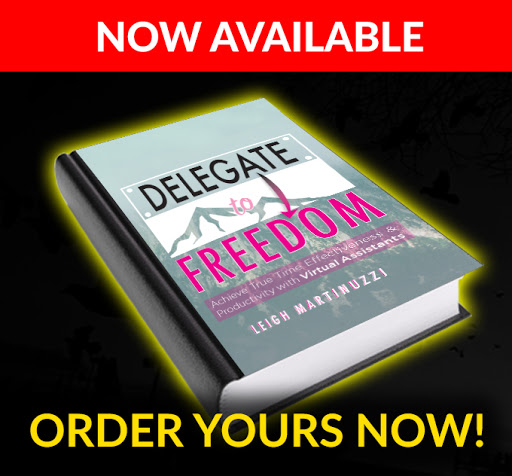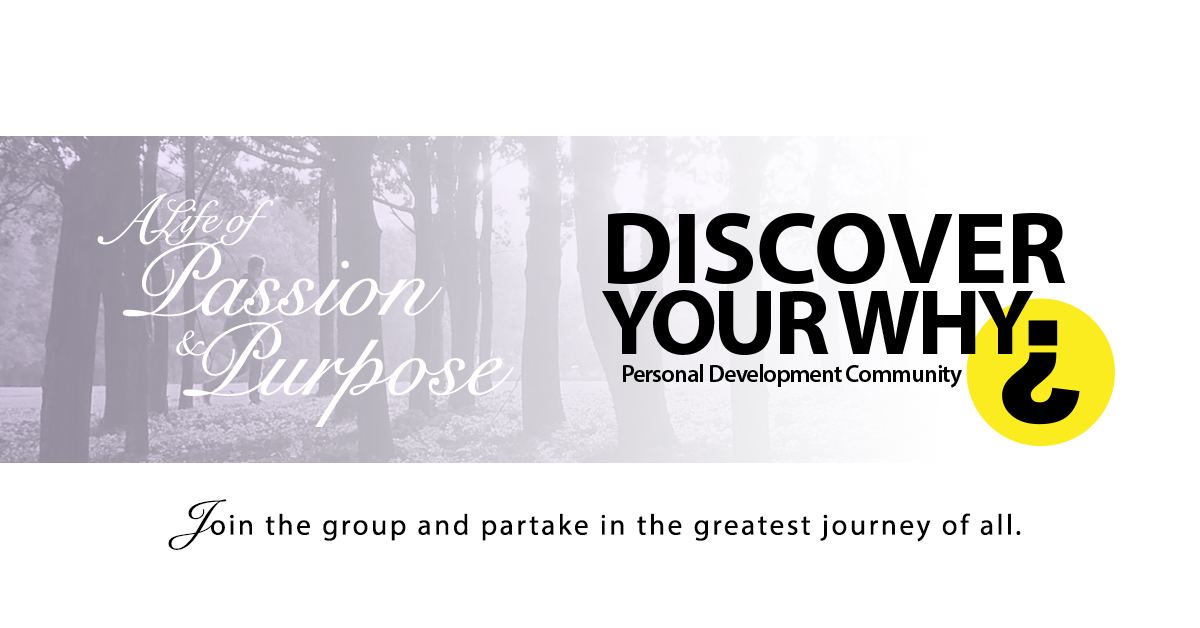
Procrastination: Is Procrastination the Thief of Time?
Have you spent time in procrastination today? If so, over what? It is usually not a matter of if you procrastinate because most of us do daily, but what you procrastinate over. When I think about all the time I’ve spent in procrastination, I wonder how much time I’ve spent over my life.
Is procrastination a time killer, is it time wasted, or is there actual benefits for procrastination?
Putting off things due to indecision, fear or a desire to pursue things that bring more immediate satisfaction on surface value seems purposeless, yet perhaps there is a reason for this act of procrastination.
Procrastination: The act of delaying or postponing something.
To understand procrastination let’s ask why. Why does it endure? Why do I procrastinate? Why can’t I make a ‘yes’ or ‘no’ decision and then enable myself to act? Why is it beneficial? Why is it harmful?
I find it amazing that when it comes to making decisions over a particular course of action, I can tell myself 100 reasons why I shouldn’t, even when I’ve decided on a course of action and am prepared to act. As Nike says, “Just do it!” However, I make excuses. I find reasons to do other activities and ways to distract myself from the task at hand.
What is more impressive is that I sometimes procrastinate over things I am passionate about. That’s strange, right?
Like most people, I make excuses to let myself off the hook. I believe the reasons our conscious mind conjures up these excuses are simply kind ways to justify to ourselves why it’s okay not to act. However, this creates a problem. When procrastinating conflict and agitation develope by the fact that “I should” or “want to” do XYZ yet I am not.
If we don’t wish to do something, then don’t! And move on.
I have found it useful that when I find myself in procrastination to ask “why?” Doing so helps me move past the trickery of the mind to understand more deeply the real reason for my delay.
Not so long ago I was in a public speaking group that required attendance once a week. Each time it came around I found myself coming up with a bunch of reasons why I couldn’t go.
Here is a sample of some of the more common ones I relied upon:
It’s too long a drive.
I don’t have time.
I have too much work today.
I need to get “XYZ” done first.
I haven’t had a chance to prepare.
I’ve got to get up early tomorrow.
You may relate to some of these.
All excuses, and in most part make logical sense. They weren’t lies nor were they compelling reasons to stop me from going. They were my gentle way out. What’s funny is it was a personal choice to join this club in the first place, and yet here I was, almost weekly, trying to find a way out.
I believe procrastination doesn’t usually occur until close to the point when action is required. I was all in to attending these meetings right up until a couple of hours out, and then I’d notice the excuses begin to roll in.
Making decisions not to do something well in advance will likely have greater reason or jusification than those last minute decisions. Pulling the pin at last minute is a soft way to avoid discomfort, fear, challenge, effort, or complexity in favour of comfort, ease, satisfaction, and simplicity. Fair enough!
However, if it is something we desire to do or need to do, then procrastination seems counter-intuitive and wasteful. Indecision consumes energy and time.
Procrastinating over whether to go or not to my speaking event for the evening may not waste too much time, but it does consume some time nonetheless. And this is not a stand-alone situation. All those moments throughout the day spent in procrastination add up. Now, I am starting to make myself sound like a serial procrastinator.
There is more in procrastination than only a misuse of our time.
When we delay or postpone something from occurring, we hinder the progress or benefit that action may bring. And there can be unease or ill feelings that result from procrastination. I don’t believe I am.Alternatively, procrastination might be a window of opportunity. Giving us time to better prepare, understand or to find greater purpose in what we seek to pursue. In doing so, we may set ourselves up for greater success or avoid doing something that lacked purpose in the first place.
What is the ‘why’ behind me deciding not to go to my public speaking meetings on many occasions? As stated, sometimes I had a legitimate reason. I was tired. It was an inconvenience. I just didn’t feel like going. That being the case, then there is no need to procrastinate, right?
The conflict of indecision can lead to anxiety or discontent. I initially joined to help improve my speaking skills, something I was passionate about but in not going I was hitting pause on my progress. And all because I just didn’t feel like going.
It’s a clash of desires, and the unease comes from taking action that is less integral to our purpose or what we value. Not matter what decision we make and which desires we choose to move towards in any given moment, we shouldn’t allow it to make us feel bad. Understanding and acceptance might assist in doing this.
I loved my group meeting, I enjoyed them and often walked away feeling better than I came, but on this occasion, I would prefer to give it a miss. Decision made, move on.
There is pleasure and pain attached to all decisions in life, and yet no matter how well informed and what direction we move in, it is likely always to have an underlying current of dissatisfaction or suffering. Pleasures can often lead us into new conditions that are unfavouable and some things may be uncofortable at first but come with greater reward.
In awareness and better understanding, we can find more peace and acceptance in our decisions with hope in reducing any unease or ill feelings that may result within procrastination or as a consequence of the final decisions we make.
Understand the consequential pleasures and pains of your decisions. Know your values and your ‘why, ‘ and in doing so, you will be able to act with greater purpose.
The progression of my public speaking skills was important to me, and there was significant enough reason for me to join and attend my club meetings. If it were Ballet, on the other hand, I would be less inclined to join, and if I did, based on the need to meet some externally motivated demand, I’d be less bothered about the procrastination of not going. That is because it carries less meaning that aligns with my values.
The consequences of procrastination will be more severe when what it is that you are procrastinating about holds more meaning. Whatever pain exists that is preventing us from taking action towards what we desire in any given moment will be more easily overcome when the source of the desire is inspired internally from motivation that aligns with our deepest values.
If there is no reason or purpose for us to act does procrastination have a chance to breathe? I would suggest that it is likely that it wouldn’t. If that’s the case there must be purpose in procrastination.
If there is purpose but purpose that arises from a need to meet someone else’s expectations or an externally inspired source, i.e., not aligned with our core values, then what is the purpose of procrastination. I would suggest that if there is procrastination that exists in these situations the purpose of it is to understand the meaning better before we proceed to act.
Time is critical and finite if there is no purpose in our actions, is that a valuable use of our time? It is my sincere belief that it is not. There may be satisfaction in pursuing activities that have no purpose, however, why procrastinate? To put off and delay such things shouldn’t bring us suffering, guilt or wasted time and energy in indecision, should it?
Procrastintion can be a good indication or wake up call for those things we should pursue and those things that perhaps a better left alone. In doing that we can pursue and better spend our time in thought, contemplation, and action doing and living our life with greater purpose. Life is short only if we live it without purpose.
Finally, if there is a purpose then I must understand why I’m in a state of procrastination. Is there a logical reason such as the case that I am simply underprepared and need more time or information before proceeding or am I avoiding a challenge or discomfort that may come from meeting my fears or stepping beyond my comfort zone? If there is then maybe I need to swallow the pain-pill and take action regardless of any alternative forms of pleasureful or comfortable options that are available at the moment.
When we embrace procrastination, we can benefit from it rather than have it hinder our actions and quality of life. It is an indication and chance to understand the purpose behind our actions better.
As I have discovered more purpose in my life, I procrastinate less. There has become very little I do that I wish to avoid. If I do succumb to hesitation, it often is an indication that I need more information and time before I proceed to enhance my success. Or I just need to push myself into my fears.
If in procrastination and after a quick assessment, that comes only by being aware, I notice a situation of avoidance – resistance to progress disguised as a friend, I know I must take action. In experience it has been when I have faced my fears or pushed forward into discomfort and started, the initial pain is always quickly forgotten and overcome by the pleasure that results.
If I opt for the easy way out over the opportunity to act towards something of meaning and purpose the initial pleasure is always quickly forgotten and overcome by the pain that results. I have learned that I’d rather end in comfort than in pain. As a result, I found myself attending more regularly my club meetings.
In the next post on procrastination, I will highlight to you several rules I use to help better guide me through the thick of procrastination.
FIND YOUR HIDDEN WHY with THE HIDDEN WHY (THW)
BUILD YOUR LIFE AROUND YOUR PASSION AND LIVE WITH PURPOSE
Sign up for free below and receive cool stuff from me each week + Plus a free copy of “The Four Pillars of Success”
In my weekly emails you will receive ideas, thoughts, learning’s and inspiration on:
- How to design a life that you want and live by your terms
- How to live a life with passion & purpose
- Methods, strategies, & techniques on life hacks
- Messages on how to better live your life
- We will also keep you up to date with fantastic interviews from THW podcast













Leave a Reply